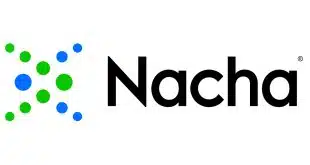Contrary to the misgivings of some retailers regarding the automated clearing house's point-of-purchase electronic check application, Wal-Mart Stores Inc. says its experience with POP has been largely positive. At the same time, however, a new fee proposed by NACHA, the rules-setting organization for the ACH, and intended to discourage unauthorized transactions is giving Wal-Mart pause in expanding its POP program, according to an executive with the massive retailer. Speaking at a NACHA conference recently, Jason Marshall, check and ACH product manager for Wal-Mart, said issues that have stopped other merchants from adopting POP, such as cashier training, have not been a problem. “POP works, it's a successful program,” Marshall told the audience. “We wouldn't have it in these locations if it didn't work. We would have killed it. We kill programs all the time.” Circumspect throughout his presentation and in questioning afterwards, Marshall refused to say how many Wal-Mart stores currently accept e-checks through POP, nor would he give any numbers on volume. The chain, he said, began its POP program six years ago. With POP, cashiers run paper checks through MICR scanners and hand the checks back to customers. The transactions are then processed via the ACH as electronic funds transfers. One of five ACH e-check applications, POP has undergone slow growth in comparison to other e-check categories, such as accounts-receivable conversion (ARC) and Internet bill payment (WEB). Merchants wary of POP have cited issues such as cashier training. Cashiers must remember, for example, to get signed authorization from customers for each transaction and must be sure to return the checks rather than store them in a cash drawer. But Marshall says training has not been an issue for Wal-Mart. “It's about a two-minute training program,” he said in his presentation. “We have prompts at the point of sale. If it says give the check back, you give it back.” Other concerns, such as MICR misreads by scanner equipment, have also turned out to be manageable. What has held back Wal-Mart from expanding POP to more outlets, Marshall says, is the chain's concern about a so-called network return entry fee, a new fee NACHA proposed earlier this year. The NREF, which would have assessed ACH originating banks?the banks that send ACH items for settlement on behalf of client merchants–an estimated $12 to $17 per unauthorized transaction, was voted down by NACHA members in June (Digital Transactions News, June 10). Originating banks would have been free to pass the fee on to their clients. NACHA said after the vote it remained committed to the idea behind the proposal, and is now re-examining facets of the proposal to “see if we can address operational issues to make it more acceptable to the voting membership,” says a NACHA spokesman. The proposal won approval from more than 57% of voters but required a two-thirds super-majority to become effective. Marshall said the prospect of the fee creates too much cost uncertainty for Wal-Mart to expand POP, given that merchants lack control over many of the factors that lead to returned debits. “We don't know what the cost structure will be, nor have any influence over it,” he said.
Check Also
Same-Day ACH Volume Rises 19%
Business, consumer, and government use of the automated clearing house network continues on its growth …



